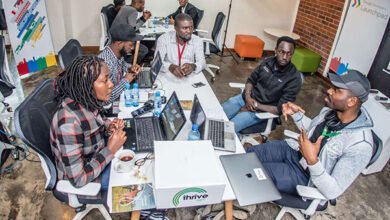Latest Injini ed-tech accelerator selected 12 SA startups

The Injini Mastercard Foundation EdTech Fellowship in South Africa, now in its second year, has chosen twelve startups from the country to participate. The fellowship provides companies with access to capital and other forms of support.
Injini, a registered non-profit organization with the sole goal of enhancing educational outcomes in Sub-Saharan Africa, was founded in 2017 and is a part of the UVU Africa Group. Its programs and research through the Injini Think Tank support the organization’s mission to improve the caliber, relevance, and accessibility of education in the region. The only specialized accelerator for ed-tech in Africa.
Injini and the Mastercard Foundation collaborated to introduce the EdTech Fellowship for startups situated in South Africa, as reported by media in the previous year. The program provides direct grant funding, product quality assessment, intensive skill development, coaching, mentorship, customized market research, and market access to qualified startups.
Following a rigorous application and interview process, twelve ventures have now been chosen for the program’s second edition. Through Injini’s team of education innovation researchers, they will have access to customized market research support, networking, knowledge-sharing, and learning opportunities with key ecosystem contributors and industry experts, and dedicated support from specialists in education innovation, fundraising, impact M&E, commerce, and more.
They will also have access to equity-free venture funding exceeding ZAR1 million (US $52,000), as well as a variety of courses and office hours with Carnegie Mellon University faculty members in the Human-Computer Interaction Institute.
The selected startups are: EcoLabs Africa, which optimizes ICT infrastructure in township and rural schools by repurposing obsolete computer equipment; Book Village, an online reading tutoring platform; E-Cubed, which provides free, digital, chat-based entrepreneurial learning, connection, and innovation opportunities for teachers, learners, parents, and officials; and Fintr, which teaches kids about money through games.
The Global Teachers Institute (GTI), which collaborates with government agencies, educational institutions, and schools to provide work-integrated learning opportunities for prospective teachers, Grow ECD, which offers an ECD management app, Mindjoy, which offers an operating system for classroom instruction, and Finding Thabo, an interactive play-based game intended to activate important brain regions and lay the groundwork for lifetime learning, were also chosen.
The remaining members of the cohort include RoboSTEAM, which specializes in teaching robotics and coding to students in primary schools; SOCO_ED, which offers an adaptable ed-tech solution fit for any industry; Ubuntu Education, which gives African teachers access to resources, networks, and professional development opportunities; and Vambo AI, which gives students and teachers multilingual capabilities that are integrated into the curriculum and learning experience.
“As South Africa’s education sector navigates its numerous challenges, Injini is eager to continue its work with the Mastercard Foundation in championing these Fellows and assisting them to scale their business, increase their impact, and effect meaningful change in education across the region,” said Injini executive director Krista Davidson.





